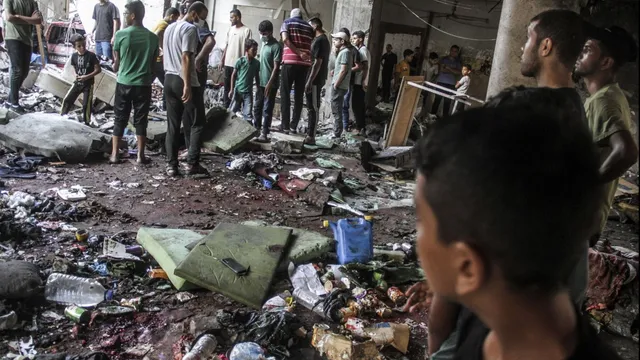
Cease-Fire Talks Between Israel and Hamas Stall Amid Rising Tensions
2024-08-15 06:29- Cease-fire talks between Israel and Hamas are set to resume in Doha.
- Hamas is reluctant to participate, raising concerns about a potential Iranian strike on Israel.
- Efforts to restart the talks have stalled as Hamas prefers implementing an earlier proposal.
Express your sentiment!
Insights
Efforts to negotiate a cease-fire between Israel and Hamas have hit a significant roadblock, as Hamas announced on August 14 that it would not participate in upcoming talks in Qatar. This decision has diminished hopes for a cease-fire that could potentially prevent an Iranian retaliation against Israel following the assassination of Hamas leader Ismail Haniyeh in Tehran. Senior Hamas official Sami Abu Zuhri criticized the negotiations, suggesting they would allow Israel to impose new conditions while continuing its military actions in Gaza. As the cease-fire discussions falter, Israel has intensified its military operations in Gaza, with hard-line cabinet ministers, including National Security Minister Itamar Ben Gvir, taking provocative actions. Ben Gvir's visit to the Temple Mount, a site of significant religious importance, has drawn condemnation from Prime Minister Benjamin Netanyahu, who emphasized that no minister has the authority to dictate policy at the site. Meanwhile, Israeli Finance Minister Bezalel Smotrich has vowed to continue settlement development despite international opposition. The United States, acting as a mediator, has been urging both parties to reach an agreement since President Biden announced the initiative in late May. However, Hamas has expressed skepticism about Israel's commitment to a lasting peace, citing ongoing military actions and the recent assassinations of its leaders. Despite these challenges, Qatar has assured the Biden administration that Hamas will have representation in the Doha talks. The backdrop of these negotiations is a broader conflict involving Iran and its proxy militias, which have escalated tensions in the region. The U.S. has recently approved $20 billion in arms sales to Israel, further complicating the situation as fears of an Iranian strike loom large.
Contexts
On August 11, 2024, international talks were initiated to end the conflict between Israel and Hamas in Gaza, aiming to prevent broader regional unrest. US mediators hoped to resolve tensions, but Hamas expressed doubt, raising concerns about the effectiveness of the mediation. The following day, on August 12, amidst escalating tensions, Iran stood firm on its decision to retaliate against Israel following the killing of Hamas leader Ismail Haniyeh, rejecting Western pleas to avoid conflict. This raised concerns of a wider confrontation in the Middle East. As high-stakes Gaza truce talks resumed on August 12, international mediators strived to halt the Israel-Hamas war and secure hostage release to avoid a broader conflict. However, Hamas voiced skepticism in the US mediator role, adding complexity to the negotiations. On August 14, ceasefire negotiations continued between Israel and Hamas in Gaza as tensions rose. Western powers pushed for a deal to prevent further conflict with Iran and Hezbollah, while Hamas expressed doubts about US mediation, creating uncertainty in the negotiations. Pressure mounted on leaders like Benjamin Netanyahu to take action for a peaceful resolution amidst the ongoing violence in Gaza. The talks aimed to achieve a ceasefire, release hostages, and prevent regional escalation.